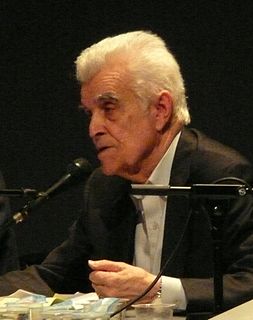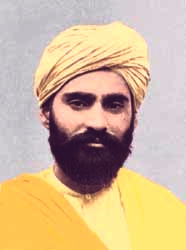A Quote by Lidia Yuknavitch
Books, like all art, breed in us desire. In times of crisis and fear and misrepresentation we need desire, or else we shut down and hide out in our houses, succumbing to infotainment and the ease of an available latte, turning off our brains and emotions. Books breed desire.
Related Quotes
What is required is the finding of that Immovable Point within one's self, which is not shaken by any of those tempests which the Buddhists call 'the eight karmic winds': 1-fear of pain, 2-desire for pleasure; 3-fear of loss; 4-desire for gain; 5-fear of blame, 6-desire for praise; 7-fear of disgrace; [and] 8-desire for fame.
Are not our desires inseparably intertwined with the continuation of life? Even the idea of eliminating desire is fruitless. The desire to eliminate all desire is still itself a desire. How can we find release and peace by replacing one desire with another? Surely we shall find peace not by eliminating desire, but by finding its fulfillment and satisfaction in the One who created it.
The human mind has a desire to know its place in the universe and the role we play in the tapestry of life. This is actually hardwired into our brains, the desire the know our relationship to the universe. This was good for our evolution, since it enabled us to see our relationship to others and to nature which was good for our survival. And it is also what drives our curiosity to understand the universe.
It is not merely our own desire but the desire of Christ in His Spirit that drives us to grow in love. Those who seldom or never feel in their hearts the desire for the love of God and other men, and who do not thirst for the pure waters of desire which are poured out in us by the strong, living God, are usually those who have drunk from other rivers or have dug for themselves broken cisterns.
True prayer is only another name for the love of God. Its excellence does not consist in the multitude of our words; for our Father knoweth what things we have need of before we ask Him. The true prayer is that of the heart, and the heart prays only for what it desires. To pray, then is to desire -- but to desire what God would have us desire. He who asks what he does not from the bottom of his heart desire, is mistaken in thinking that he prays.
There are many objects of desire, and therefore many desires. Some are born with us, hunger, yearning, and pride of place, and some are of the foolishness of the world, such as the desire to eat off silver plates. Desire is a wild horse to be tamed. Virtue is habit long continued. The taming of desire is like the training of an athlete. Discipline is not the restraint but the use of energy.
There was this interesting quote: try and live your life without fear and desire. It's this concept that's like when you look at a painting in a museum and you are held in aesthetic arrest. So the I, the ego, is stripped, is gone. The observer and thing become one. That's where fear and desire come in because you don't want to own it, possess it, desire it, and it's not moving you to fear. It's like you're in this harmonious state with the object.
Yeah, unfortunately [ films like Miss Julie are a dying breed]. And that is sad, because we need these. Like we need books, we need classical music, we need ballet, we need opera, to remind us really of who we are and why we are, and we need in movie houses - even to be in a movie - where you sit and see not only excitement and man-hero, woman-hero, you need quietly, just like that Hawking movie we talked about, to know how people overcome.



































